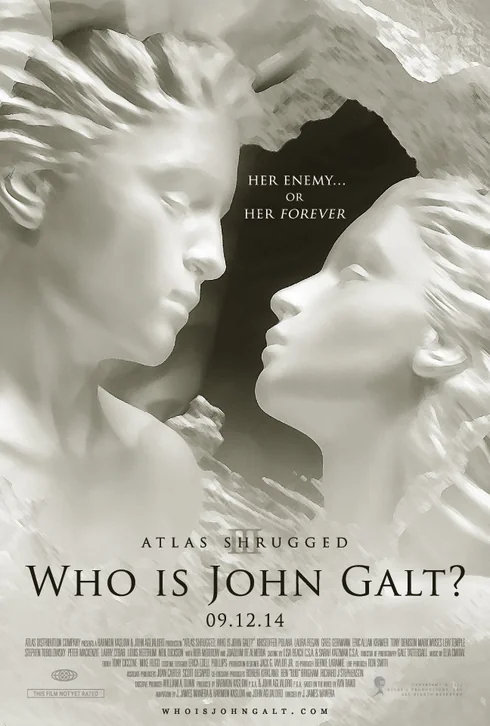🎯 Quick Overview
Trailer
- Director: James Manera
- Genre: Drama, Mystery, Sci-Fi
- Release year: 2014
- Runtime (length): 1h 39min
- IMDb rating: 4.3/10 (5.7K votes)
- Rotten Tomatoes: 0%
😅 Plot Summary – Badly Explained
When the government gets too big, all the smart, productive people literally vanish to a hidden valley, leaving one stressed executive to find their super-mysterious leader and figure out if she should join the world’s longest philosophical strike or just try fixing the trains herself.
🍿 Atlas Shrugged: Part III: Detailed Plot Synopsis
A Nation in Decline
Twelve years after scientist John Galt vowed to ‘stop the motor of the world,’ the United States is in economic freefall. Industries collapse, shortages are rampant, and strict government regulations stifle innovation and production. The most productive individuals are mysteriously vanishing, leaving behind a society struggling under the weight of collectivist policies.
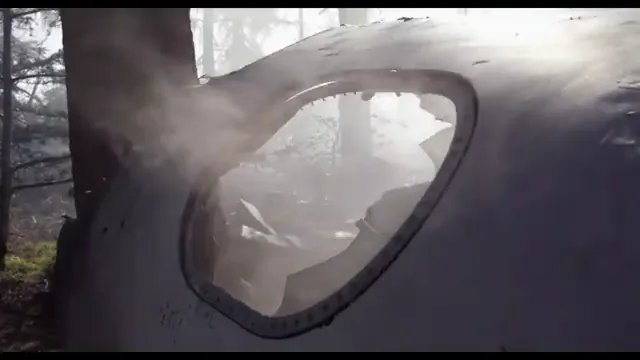
The Search for John Galt
Dagny Taggart, a top executive at Taggart Transcontinental Railroad, has been relentlessly searching for the cause behind the disappearances and the identity of John Galt. Her search leads her to pilot a plane into a shielded valley, resulting in a crash. When she awakens, she finds herself rescued by the very man she sought: John Galt.

Discovering Galt’s Gulch
Dagny is brought to Galt’s Gulch, a hidden community where the world’s leading minds and industrialists who ‘went on strike’ have taken refuge. Here, they live and work freely, utilizing their talents without government interference or demands for redistribution. Dagny meets many figures she thought were lost, including Midas Mulligan and Francisco d’Anconia, and learns about Galt’s revolutionary motor and his philosophy.
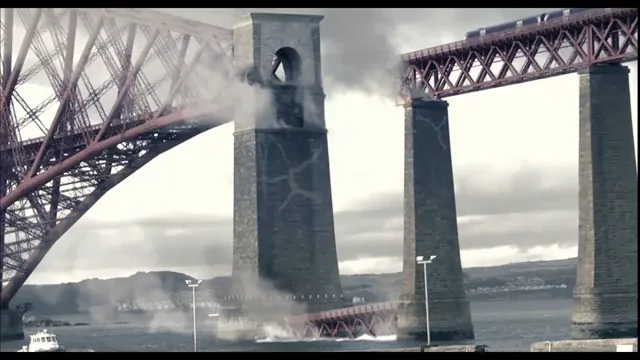
Return to the Collapsing World
After spending time in the Gulch and learning Galt’s perspective, Dagny chooses to return to the outside world, hoping to fight against the encroaching totalitarianism and save her railroad. She finds the situation worse than before, with the government nationalizing industries, including Taggart Transcontinental, and making increasingly irrational decisions that accelerate the nation’s collapse, such as halting vital food shipments.
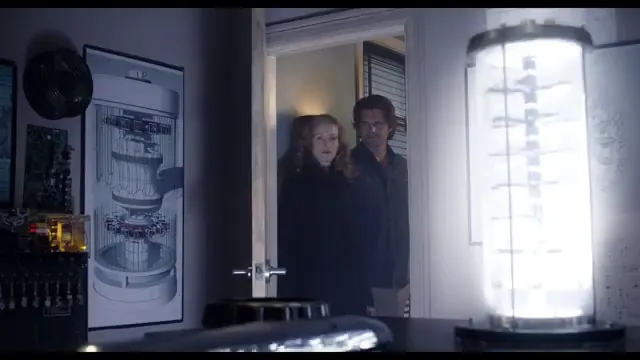
Galt Emerges
As the economy crumbles, Dagny encounters John Galt working anonymously as a manual laborer on her railroad. The Head of State, Thompson, decides to address the public to rally support for the government. However, Galt hijacks the national broadcast, delivering a lengthy speech explaining his philosophy, the reasons for the strike, and the moral argument for individualism and production.
⚠️ Spoilers and Ending Explained
🎬 Cast & Characters
- Dagny Taggart (Laura Regan): A tenacious railroad executive who searches for John Galt and eventually joins his hidden community.
- James Taggart (Greg Germann): Dagny’s brother and the increasingly ineffective head of Taggart Transcontinental who supports government control.
- Head of State Thompson (Peter Mackenzie): The leader of the failing totalitarian government who becomes obsessed with finding and controlling John Galt.
- Dr. Floyd Ferris (Larry Cedar): A government scientist who develops unethical technology, including a device used to torture John Galt.
- Francisco d’Anconia (Joaquim de Almeida): A former industrialist and friend of Dagny who is revealed to be a key ally and participant in John Galt’s strike.
- Wesley Mouch (Louis Herthum): The head of the Bureau of Economic Planning who implements the government’s destructive policies.
💬 Memorable Quotes
- John Galt: “I’ll stop the motor of the world.” – His iconic vow made when he quits his job at Twentieth Century Motors, dedicating himself to organizing the strike of the nation’s producers.
- John Galt: “I swear by my life and my love of it that I will never live for the sake of another man, nor ask another man to live for mine.” – Part of his lengthy radio address, encapsulating his core philosophy of individualism and self-ownership.
- John Galt: “We are not trying to impose our values on the world we left behind. They are free to continue to believe as they want, whatever they want, but they are going to have to do it without our help.” – Explaining the nature and purpose of the strike to Dagny Taggart and others in Galt’s Gulch.
- Midas Mulligan: “They called me heartless… But when they forced me to give loans to people who could never pay me back, I got the hell out.” – Explaining to Dagny Taggart in Galt’s Gulch why he, a successful banker, joined the strike.
- John Galt: “That kind of job shouldn’t exist. No one should have that kind of power.” – Rejecting the Head of State Thompson’s offer to take a powerful government position, highlighting Galt’s rejection of state control.
💰Box Office
- Budget: $5,000,000 (estimated)
- Domestic Gross: $846,704
- Worldwide Gross: $846,704
💥 Atlas Shrugged: Part III Reviews
Personal Review
Okay, so I’ve stuck with this trilogy from the start, mostly because I’m fascinated by the book. Part III finally gets to the famous ‘Who is John Galt?’ and finding his hidden valley. I was really hoping they’d nail the climax, but man, the production issues were just impossible to ignore this time around. The changing actors are still weird, and it felt like half the movie was just narrated. Seeing Galt’s Gulch was cool in theory, but it looked… well, cheap. Like a nice Airbnb vacation spot instead of a hidden industrial paradise. And the ‘Project F’ torture device scene? I honestly couldn’t help but laugh; it looked like something from a community theatre sci-fi play. Despite all that, the core message *does* manage to shine through during some of the conversations and Galt’s speech, even though the speech was way shorter than in the book. If you’re a die-hard fan, you’ll probably watch it just to see the story completed on screen, but don’t expect a polished movie experience. It’s a tough watch, saved only by the power of the ideas trying to break through the low-budget chaos.
- Who would enjoy:
- “Fans of Ayn Rand’s novel ‘Atlas Shrugged'”
- “Viewers interested in libertarian or objectivist philosophy”
- “Those who have seen the previous films in the trilogy and want to complete the story”
- “Individuals interested in films with strong political/philosophical themes”
- Content warnings ⚠:
- “Rated PG-13 for some violence”
- “Includes a scene of sexuality”
- “Depicts torture”
- “Mentions/shows suicide (Cherryl Taggart)”
Professional Reviews
- Fictional Critic: “The final installment in the Atlas Shrugged trilogy arrives with a whimper. Plagued by a clearly minuscule budget and noticeable production shortcuts, this film struggles to bring Rand’s epic conclusion to life. The constantly changing cast is jarring, performances are wooden, and crucial plot points are reduced to hurried narration. What should be a climactic unraveling feels like a poorly edited slideshow. A noble, albeit failed, attempt at adapting challenging material.
- Fictional Critic: “While ‘Atlas Shrugged: Part III’ suffers from the same production limitations as its predecessors, it manages to convey the core philosophical arguments with some clarity, particularly during key dialogue scenes and John Galt’s address. It’s a film driven purely by its message, which will undoubtedly resonate deeply with fans of the book. However, newcomers will likely be lost and unimpressed by the often-amateurish execution and lack of compelling cinematic storytelling.
Audience Reactions
Fans appreciated seeing the philosophical ideas brought to the screen, particularly John Galt’s speech.: The film effectively conveyed Ayn Rand’s core message and themes, satisfying viewers invested in the book’s philosophy despite significant production challenges.
Many viewers were simply glad to see the lengthy book trilogy completed in film format.: There was a general sense of relief and accomplishment among dedicated fans that the entire story was finally adapted, regardless of quality.
Some viewers found unintentional humor in the low production values and certain scenes.: The film’s technical shortcomings, like the Project F device or some wooden acting, provided unexpected moments of amusement for some audience members.
Overall Consensus: A polarizing conclusion to the trilogy, largely appreciated by dedicated fans for its faithful (though condensed) presentation of the book’s philosophical message, but widely criticized by general audiences and critics for its low production values, poor acting, and disjointed narrative.
Awards
🛠️ Behind the Scenes
- “The entire cast of major characters was changed for each of the three films in the trilogy.”
- “The container ship seen sinking in the opening sequence is footage of the real-life MV Rena shipwreck off the coast of New Zealand in 2011.”
- “Real-life conservative political figures including Ron Paul, Glenn Beck, and Sean Hannity made cameo appearances.”
- “Due to severe budgetary limitations, many plot points from the expansive novel were conveyed through extensive narration and montages rather than being filmed as scenes.”
- “The ‘Project F’ torture device used on John Galt was noted by many viewers as looking very cheap, sometimes compared unfavorably to props from low-budget cult films.”
🖥️ How to Watch Atlas Shrugged: Part III?
As of late 2023/early 2024, ‘Atlas Shrugged: Part III’ may be available for streaming on platforms like Tubi (with ads) or for digital purchase and rental on services such as Prime Video, Apple TV, Vudu, or Google Play. Availability can change, so check major digital storefronts and streaming services for the most current options. It’s the third and final installment in a trilogy adapting Ayn Rand’s novel.
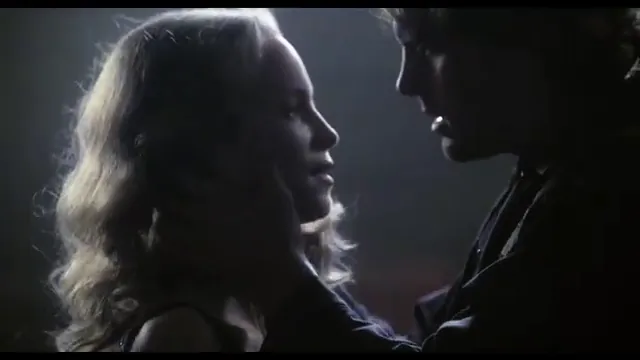
🎥 Similar Movies
If you enjoyed Atlas Shrugged: Part III, you might like these similar films:
- V for Vendetta (2005): Features an individual challenging a totalitarian government in a dystopian future, focusing on ideas of freedom and resistance.
- The Fountainhead (1949): Based on another novel by Ayn Rand, exploring themes of individualism, integrity, and the struggle of a creative visionary against societal conformity.
- Brazil (1985): A cult classic dystopian satire depicting an overly bureaucratic and regulated society, where individuality is stifled by pervasive systems.
- The Giver (2014): Released the same year, this film also portrays a seemingly utopian society that achieves stability by suppressing individuality and emotion, questioned by a protagonist who discovers the lost complexities of the past.
- There Will Be Blood (2007): Depicts a fiercely independent, self-made oilman driven by his own vision and ambition, showcasing a raw portrayal of entrepreneurial individualism.
🛒 Atlas Shrugged: Part III Related Products
- Atlas Shrugged (Centennial Edition) Paperback: The definitive edition of Ayn Rand’s epic novel that inspired the film series. Features appendices and a forward by the author.
- Taggart Transcontinental Vintage Railroad Poster Print: A high-quality print featuring a stylized design inspired by Dagny Taggart’s railroad company from the movie.
- “Who Is John Galt?” T-Shirt: Soft cotton t-shirt featuring the iconic question from the movie and book.
- Atlas Shrugged: The Complete Trilogy (Parts I, II, III) Blu-ray Collector’s Set: Own all three parts of the Atlas Shrugged film adaptation in this special collector’s set.
🎧 Soundtrack
Atlas Shrugged: Part III features a captivating soundtrack that enhances the movie’s atmosphere and emotional impact. Here are some notable tracks:
- “The Strikers’ Ascent” – performed by Various Artists
- “Galt’s Overture” – performed by Various Artists
- “Iron Will” – performed by Various Artists
- “Echoes of the Motor” – performed by Various Artists
You can find the complete soundtrack on Amazon Music and Apple Music.
🤨 FAQ
Atlas Shrugged: Part III is the final film in a trilogy based on Ayn Rand’s novel. It depicts a dystopian United States where the economy is collapsing due to government overreach and the most productive citizens have disappeared. The story follows Dagny Taggart as she finally meets the mysterious John Galt and must choose between returning to the dying world or remaining in a hidden haven of freedom, culminating in Galt’s public stand and the final collapse.
Yes, the film is based on the final third of Ayn Rand’s 1957 novel ‘Atlas Shrugged’. It concludes the story started in ‘Atlas Shrugged: Part I’ and ‘Atlas Shrugged Part II: The Strike’.
Like the previous two films in the trilogy, Atlas Shrugged: Part III features an entirely new cast for the main roles. This frequent recasting was largely due to budgetary challenges and difficulties in securing actors for a low-budget, politically charged independent production across multiple years.
In Atlas Shrugged: Part III, Project F is a classified government device intended to break John Galt and force him to cooperate by controlling his mind or extracting information through torture. Its depiction in the film has been criticized for its low-budget appearance.
Galt’s Gulch is a hidden valley and community where the ‘strikers’ – the innovative and productive individuals who have disappeared from society – have created their own self-sufficient haven. It operates on principles of individual liberty and free markets, free from government control and societal demands.
The film embodies the core principles of Ayn Rand’s Objectivism, emphasizing individualism, rational self-interest, laissez-faire capitalism, and limited government. It argues that ‘producers’ (innovators, industrialists, artists, etc.) are the engine of society and that their withdrawal (‘the strike’) leads to societal collapse when they are excessively regulated, taxed, and morally condemned for their success.
Reception to the Atlas Shrugged film trilogy, including Part III, is mixed and often polarized. While fans of the book appreciate the attempt to bring the story to the screen and highlight its themes, many critics and general viewers found the production values low, the acting inconsistent (partially due to recasting), and the adaptation rushed and didactic, particularly in condensing the philosophical arguments. They are generally not considered high-quality cinematic achievements, though they serve as a visual representation of the book’s narrative.
🔥 Bonus Content
Political vs. Economic Power: An Atlas Shrugged movie commentary
Curious about the big ideas driving ‘Atlas Shrugged Part III’? This video breaks down the core conflict between political and economic power with examples from the movie – it’s a quick way to get a deeper understanding!
✨ Rate
There are no reviews yet. Be the first one to write one.


